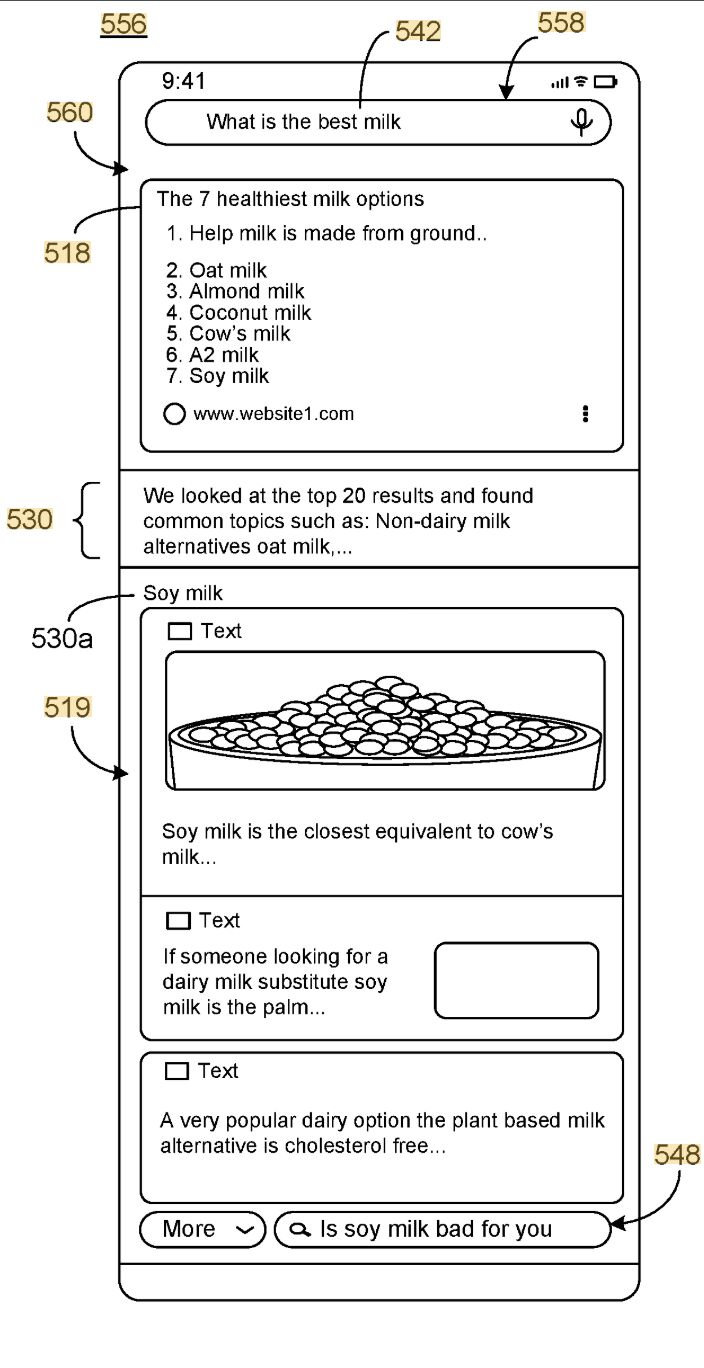Google’s “Search with Stateful Chat” & Thematic Search

Google’s “Search with Stateful Chat” patent is a continuation of the earlier “Generative Search Summaries” patent. The original “Generative Search Summaries” was developed by two key Google inventors who currently serve as VPs in different branches of the company. The “Stateful Chat” patent builds upon similar foundations as AI Overviews, though its inventors have introduced related—but distinct—design elements.
Thematic Search & User‑Context Clustering
One of these designs is called “Thematic Search”, which closely resembles David C. Taylor’s “User‑Context Based Search Engine” concept. Both approaches emphasize that queries contain underlying themes or contexts, which can be used to cluster sources and create query augmentations or pattern-based expansions.
In truth, LLM-based optimization is largely a mathematical game involving query augmentation and question generation—a process we’ve already been practicing for years. The key difference now is that Google’s AI Mode introduces analogies that don’t exist in the original source documents. It operates with pre-defined prompts such as “make it beginner-friendly” or “explain it like I’m five.”
Facts vs. Analogies
When optimizing for AI Mode, it’s critical to distinguish between when to use the vocabulary of an answer for relevance, and when to adopt its tonality to match the searcher’s language or intent.
In my framework, I always separate facts from opinions. So, if you want to include an analogy, place it within a <blockquote> element using semantic HTML—after presenting the factual information. This keeps the structure clean and ensures clarity for both users and machines.
“Use analogies sparingly and always label them as illustrative, not factual.”
Finally, remember that AI Mode and AI Overviews are fluid by design—this is what makes them “stateful.” Don’t rush to update your content based on short-term changes in how results are displayed. Instead, focus on understanding core processes like Query Augmentation and Question Generation.
If you optimize your documents for the possibilities a search engine might explore, you’ll improve both relevance and responsiveness.
